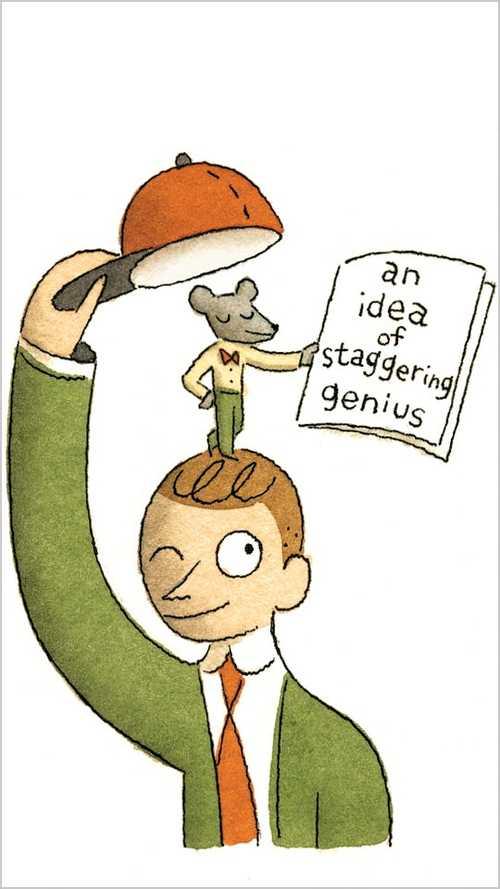How to Pitch a Brilliant Idea
Curated from: hbr.org
Ideas, facts & insights covering these topics:
9 ideas
·3.84K reads
11
Explore the World's Best Ideas
Join today and uncover 100+ curated journeys from 50+ topics. Unlock access to our mobile app with extensive features.
Why selling ideas is hard
Generating creative ideas is easy. Selling them to strangers is hard. The ability to sell an idea has as much to do with the seller's traits as the idea's inherent quality.
Judgments about the pitcher's ability to come up with workable ideas can interfere with the perception of the idea's worth. That means that when you're preparing to pitch your idea to strangers, your audience will put you in a box. And in less than 150 milliseconds.
149
1.06K reads
Catchers have no verifiable way to measure creativity
A study showed that people on the receiving end of pitches have no objective way to assess creativity - not even the expert ones.
- Their criteria are subjective and often inaccurate, and from early on, they are set.
- If they detect subtle cues indicating that the pitcher isn't creative, they won't look favorably at your proposal.
- However, if they are made to feel that they are participating in an idea's development, they respond well.
130
568 reads
Successful pitchers
Successful pitchers tend to be categorised by catchers as one of three types.
- The showrunner comes off as a professional who combines creative inspiration with production know-how.
- The artist appears to be unpolished and prefer the world of ideas to happen daily.
- The neophyte seems young, inexperienced, and naive.
The showrunner involves the audience in the creative process by deliberately levelling the power differential, the artist inverts the differential, and the neophytes exploit it. They all get the catchers to view themselves as creative collaborators.
137
483 reads
Successful pitchers involve the catchers
We believe that creative people possess certain traits. For example, unconventionality, intuitiveness, sensitivity, narcissism, passion, and youth. When a stranger pitches an idea, the catcher subconsciously uses these traits to sort through the pitchers as creative or not. Only 1% of ideas will make it past the initial pitch.
To avoid fast elimination, successful pitchers emit passion for their ideas and find ways to let the catchers shine.
124
357 reads
The showrunner
Showrunners combine creative thinking and passion with technical know-how to convince catchers that the ideas can be developed successfully.
They engage the catcher by getting the catcher to respond to a memory they are both familiar with. Then they build on the catcher's knowledge and interest, eventually guiding the catcher to the core idea.
126
319 reads
The artist
They display passion and enthusiasm about their ideas but are less conformist in their dress and mannerisms and tend to be socially awkward. The artist appears to have little or no knowledge or interest in the details of implementation.
They completely command the catcher's imagination by drawing the audience into imaginary worlds. "Picture what happens when..." They lead catchers through exciting, detailed narratives.
124
284 reads
The neophyte
Neophytes plead ignorance. They score points for daring to do the impossible, which is seen as refreshing. They present themselves as eager learners and confidently ask for help.
Catchers are naturally flattered and enjoy sharing their knowledge. They become mentors who want to see the neophytes win. Entrepreneurs are generally natural neophytes. They achieve success by sheer force of personality.
122
251 reads
Catchers beware
There is nothing more dangerous than a good pitcher with no real talent. Catchers too often let themselves be wooed by positive stereotypes, especially that of the showrunner, rather than by the quality of the ideas.
Real creativity is more difficult to classify. Those who buy ideas need to be aware that relying too much on stereotypes can cause them to overlook creative individuals with great ideas.
114
237 reads
Test the pitcher
- In a meeting with a showrunner, the catcher can test the pitcher's expertise and question how the pitcher would react to various changes to the idea.
- For artists and neophytes, their ability can be judged by asking them to deliver a finished product. In Holywood, competent catchers will ask them for finished scripts before hiring them. A prototype can allow the catcher to judge quality.
- To safeguard against hasty judgements, enlist another judge or two to help weigh the pitcher and the idea.
120
281 reads
IDEAS CURATED BY
Alana F.'s ideas are part of this journey:
Learn more about problemsolving with this collection
How to make sustainable choices in everyday life
Identifying ways to reduce waste and conserve resources
Understanding the impact of human actions on the environment
Related collections
Similar ideas
5 ideas
4 ideas
6 ideas
Read & Learn
20x Faster
without
deepstash
with
deepstash
with
deepstash
Personalized microlearning
—
100+ Learning Journeys
—
Access to 200,000+ ideas
—
Access to the mobile app
—
Unlimited idea saving
—
—
Unlimited history
—
—
Unlimited listening to ideas
—
—
Downloading & offline access
—
—
Supercharge your mind with one idea per day
Enter your email and spend 1 minute every day to learn something new.
I agree to receive email updates

